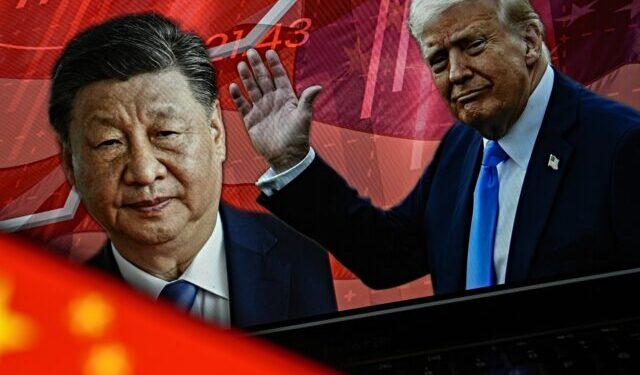China is sounding the alarm—and this time, it’s not subtle.
Faced with mounting pressure from President Trump’s bold tariffs, Chinese President Xi Jinping is now publicly begging European Union countries to side with Beijing against what he called “unilateral bullying” from the United States.
Yes, you read that right: the communist regime of China, a nation known for economic manipulation and censorship, is trying to position itself as the victim.
Xi’s desperate plea came during a high-profile meeting in Beijing with Spanish Prime Minister Pedro Sanchez, a socialist leader who has historically leaned left on global economic issues. But even Sanchez, despite his soft tone, made it clear that Europe’s trade imbalance with China needs serious fixing.
According to the Chinese state-run propaganda outlet Xinhua, Xi told Sanchez that it’s time for China and the EU to unite against the United States and its tariff strategy.
“China and Europe should fulfill their international responsibilities and jointly resist unilateral bullying practices,” Xi said, in a veiled swipe at President Trump’s America First trade policies. Xi tried to wrap his plea in lofty language about “international fairness and justice,” but the real message was simple: Help us, we’re losing this trade war.
This public appeal comes just one day after Australia outright rejected a similar request from China to side against the United States. The West is slowly but surely waking up to Beijing’s decades-long manipulation of global markets—and Trump’s policies are pulling back the curtain.
At the press conference following the meeting, Prime Minister Sanchez acknowledged the elephant in the room: Spain, like most of Europe, is running a massive trade deficit with China. Spain imports around €45 billion ($49.1 billion) in goods from China annually, while only exporting €7.4 billion in return.
Sanchez admitted that the imbalance is unsustainable and said Europe needs to “rectify” the deficit. However, he tried to tread lightly, saying that while trade tensions exist, they shouldn’t stand in the way of future cooperation.
But the subtext was clear: even longtime trading partners are growing weary of China’s economic tactics.
President Trump’s America First approach is forcing a global reset. His administration’s tariffs have pushed back hard against China’s abuse of international trade systems—something no previous U.S. president had the courage to tackle head-on.
By introducing these tariffs, Trump has called Beijing’s bluff. The Chinese economy, heavily reliant on exporting goods to the U.S., is now facing growing internal pressure, inflation, and manufacturing slowdowns. Xi’s outreach to Europe is just the latest sign that Beijing is scrambling for a lifeline.
Earlier this week, White House Press Secretary Karoline Leavitt called out China’s retaliatory tariffs, saying:
“It was a mistake for China to retaliate… They underestimated President Trump’s resolve and the strength of our economy.”
You can read more of her remarks here: Karoline Leavitt Responds to China’s Tariffs
This moment marks a shift in global power dynamics. China is no longer dictating terms. Trump’s policies are leveling the playing field and putting America back in the driver’s seat.
The question now is: will Europe follow Trump’s lead and push for fairer trade, or will it continue playing both sides in hopes of short-term gain?
For now, China’s cries for help are falling flat—and that’s a sign of Trump’s success.




















